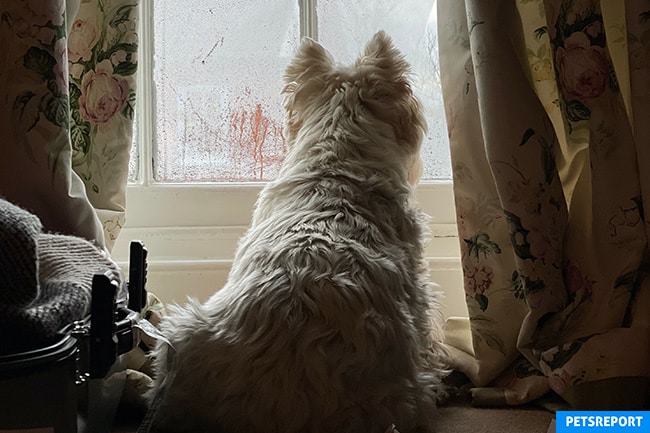Pandemic is not all bad for some. It brings out the happiest days for our furkids at home! With the lockdown and us being home 24/7, our furry friends no longer have to be left home all alone; they no longer need to be bored because your presence is all they need.
However, as schools and offices slowly are opening up, our pets may suffer from empty nest syndrome. Yes, our pets have empty nest syndrome, too! While we get back to work all day, our pets will need to adjust to our absence in the house. And some may suffer from depression. Like humans, our pets also get depressed when there is a sudden alteration in their daily routines.
Ways to help your pet with empty nest syndrome
A few common signs of depression are loss of appetite, being less active, and sleeping more often and extended hours than usual. The good news is that animals are good at what’s happening “now,” and they usually get over it in a week or so. But what happens if your pet doesn’t “recover”? Here are some tips to help your pet deal with the empty nest syndrome:
Check-in with your local vet
If your pets are inactive and sluggish for quite some time, you should have your vet check on your furry friend’s health. If your pets have been less active and are not eating for quite some time, their health might be at risk. Consulting your local vet would be the most ideal to do the necessary medical and professional interventions.
Reward your pets when they show happiness and activity
As a furparent, we always want to see our pets happy. If they show changes in their behaviors, you should make sure to reward their positive energy. Dr. Bonnie Beaver, an active director of the American College of Veterinary Behaviorists, noticed that many pet owners treat their pets to cheer their furkids when they seem sad. Your pets may think that they are rewarded for being sad. Remember that rewards are only given when they show positive behavior, and giving them treats when they are unhappy is not positive reinforcement. So provide your pet with their favorite treats when they show signs of being their old selves again.

Go on long walks
Animals and humans are social beings; extending your hikes a little longer is good for you and your furry friend. As proven by science, exercise is good for you and your pet, and it also helps boost your mood. A walk to the dog park is excellent for your pet’s brain, and hanging there a little bit longer than you used to may improve your pet’s mood.
Encourage playtime
Your pets love it when you play with them. You can set your playtime in your most convenient hour of the day. Encouraging your pets to play will also help boost their energy and makes them happier. You can buy them new toys and even invite some furry kids over to your house for playtime! If your pet has furry friends in the neighborhood, it is also good that you invite them in and schedule for playtime.
Antidepressants
Antidepressants should be your last resort. If everything else seems to be not working, it would be wise to ask your vet for an antidepressant for your poor pet with empty nest syndrome. Your trusted veterinarians would do the necessary screening and check if your pet does need a prescription. Like humans, animals also experience some changes in their brain functions, especially if they have been involved emotionally. So with proper treatment and medication, your pet would snap out of it and live a healthy and everyday life.
Take care of your fur-friends
Empty nest syndrome is natural for both humans and animals! It means a lot to our pets if we are with them, and it means even more than if we leave for long hours. Remember that our pets consider us as their world, and our absence is a heartbreak. As we transition from working from home to getting back to routine office hours, remember to include your pets’ welfare in every change that happens in your life. After all, they are a valued family member!

